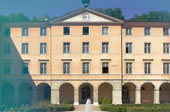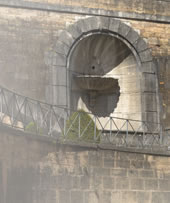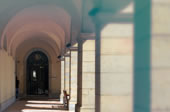


- aFont size -
- AFont size +
- PrintPrint this page
- version pdfPage in PDF format
Welcome
Facts
The Lyon Conservatoire National Supérieur Musique et Danse is a state institution which comes under the responsibility of the minister in charge of culture.
The Lyon Conservatoire National Supérieur Musique et Danse educates the artists of tomorrow: it is a specialised school with the highest standards of excellence and innovation and a special reputation for its awareness of the needs of student musicians and dancers as they advance towards their artistic careers on stage.
The CNSMD is a state institution which operates under the auspices of the Ministry of Culture and Communication. The decree in current application is the decree n°2009-201 of 18th February 2009. The conservatory is managed by an administrative board whose chairman is appointed by the minister in charge.
It has the vocation as an institution of higher education to encourage ensemble activities and the cross-fertilisation of experience. Ever since it was established, the CNSMD has always been admired for its teaching methods, the new subject areas it embraces, as well as for its approach to graduate employment. Creativity and research are of paramount importance in both fields of music and dance.
Studies at the conservatory are organised in accordance with the recommendations of the Bologna Process of the European Higher Education Area. This facilitates links with other higher education institutions and universities. Many partnerships are currently being developed to further strengthen research; the CNSMD is an associate member of the Université de Lyon and of the consortium of higher-education and research institutions (COMUE: Communauté d’universités et établissements) located within the two neighbouring cities of Lyon and Saint-Étienne.
Graduate employment is a major concern and the conservatory ensures that students gain experience in professional situations (study projects, training courses, etc.) thanks to partnerships with recognised cultural establishments in the area. A regular monitoring process of recent graduates indicates the reality of their professional situations and the results of their search for employment
The conservatory also has an extremely active policy of international exchanges and partnerships. Both students and teachers are regularly able to benefit from different teaching approaches and learn about specific cultures. This is made possible by the sixty-strong network of European Erasmus exchange partner institutions and the conservatory’s membership of several other international networks.
In order to bring students into contact with the professional network, the conservatory organises an annual season of public events numbering over 450 which allow the students to perform in different configurations. In addition, there is a dynamic policy of partnerships with various public and private artistic organisations where our students can and do perform regularly throughout the year.
Direct access


